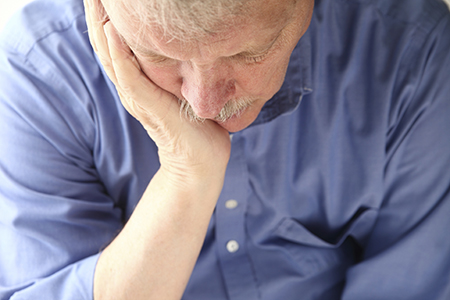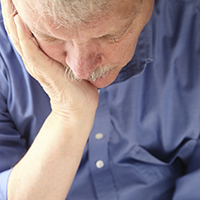A University of Liverpool study has found that people are increasingly diagnosed and treated with medication for depression when they are suffering ‘normal’ human experiences such as grief and sadness.
A report published in the British Medical Journal (BMJ) found that although the prevalence of depressive disorders is stable in the UK and US, rates of diagnosis have increased considerably. In England, anti-depressant prescriptions increased by 10 per cent a year between 1998 and 2010 and in the US, 11% of over 11s were prescribed anti-depressant drugs.
The report identifies a number of factors which are responsible for the increase including the lowering the threshold of what constitutes depression. The formal definition of depression was introduced by the Diagnostic and Statistical Manual of Mental Disorders (DSM) in 1980 and resulted in sadness and grief being diagnosed as depression.
In the most recent version of the manual, DSM-5 published last year, the definitions of depression have been broadened even further. It now puts a timescale of two weeks for a person to recover from a bereavement after which a depression disorder can be diagnosed.
Professor Chris Dowrick, from the Institute of Psychology, Health and Society who also works as a GP, said: “Over diagnosis is now more common than under diagnosis. Evidence shows that anti-depressant medication has little or no effect on mild depression and the passing of time and other means of support generally make people feel better.
“In order to prevent unnecessary medication with its associated side-effects, risks and costs, the diagnostic criteria for defining depression need to be tightened up. Instead of prescribing medication, more attention needs to be given to support, advice, social networks and psychological interventions. GPs could then focus on those with serious mental health needs.”
The report also argues that over-diagnosis and over-treatment are the result of heavy drug company marketing, a focus among many psychiatrists on the biology of psychiatric symptoms rather than their psychological, social, and cultural aspects, alongside increased requests from patients for medication and subsequent response from GPs.
To read the full article please visit: http://www.bmj.com/content/347/bmj.f7140.


There was an article posted here in November 2012 discussing the increased recognition and affliction of ‘circumstantial’ depression within the context of our minimum-growth economy in the UK – it’s now interesting and ironic to see so soon these discussions on over-diagnosis for some situations which may simply be natural human responses to impermanent grievances (for want of a better phrase). Then again, it must be a devastatingly complicated task for those who formally define depressive orders to effectively agree on the boundaries for ‘normal’ depressive feelings and ‘abnormal’ clinical depression. That said, only two weeks to grieve the passing of a loved one and then diagnosis can be made with potential prescription of drugs? Surely that’s a dubious spec. Perhaps the UK could put a little more focus on alternative approaches to recognising and elevating mood which can benefit those suffering from both camps of depressed state. It can’t all be about meds and ticking off a happy/sad journal each day; acquiring fulfilment and a renewed sense of purpose and happiness surely requires other forms of support.